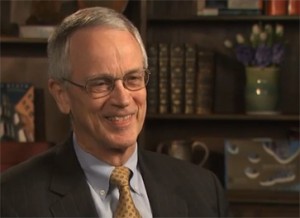Sharing Chuck Vest’s Lessons in Leadership
-
-
slice.mit.edu
Filed Under
Recommended

The powerful leadership of a humble man was a central theme of the March 6 memorial service for Charles M. Vest, MIT’s 15th president. Vest, who died of pancreatic cancer in December, was praised for influential decisions ranging from supporting gender equity to establishing OpenCourseWare, an idea that has sparked a learning revolution.
His bold decisions provide leadership lessons for many of the speakers including Institute and academic leaders, former Vice President Al Gore, and Raymond S. Stata ’57, SM ’58, founder of Analog Devices.
Former MIT presidents Paul Gray ’54, SM ’55 and Susan Hockfield praised Vest’s tireless advocacy in Washington. “As president of the National Academy of Engineers, he continued his role as advocate in chief for sound federal policy for education and research,” Hockfield said.
Al Gore, commenting via video, called Vest a good friend and a "true visionary" who was instrumental in advising the Clinton-Gore White House on emerging science and technology, environmental policy, the design of the space program, and the development of the information superhighway.
“Chuck Vest changed the lives of women scientists and engineers worldwide,” Professor Emeritus of Biology Nancy Hopkins reminded the audience. In 1999 when he endorsed the findings of the MIT report on the Status of Women Faculty in Science, which documented unequal treatment, he asked to write a note with the report.
“Chuck wrote, ‘I’ve always believed that contemporary gender discrimination within universities is part reality and part perception. True, but I now understand that reality is by far the greater part of the balance.’ With his two sentences, Chuck had reached from MIT into the White House and obtained a national mandate from the president of the United States,” Hopkins said.
Ray Stata said Vest profoundly changed campus life for students—and he stayed calm even when decisions were contentious. “Chuck’s mild manner masked his profound sense of purpose and his determination to leave MIT an even greater place that he found it,” Stata noted.
In Stata’s own undergraduate days, “student life was a grim experience in many ways, but it didn’t have to be that way,” Stata said. Vest’s support for the Presidential Task Force on Student Life and Learning resulted in a new policy that required first-year students to live on campus, a policy shift that generated much discussion along with changes in the living groups. “The culture of community emerged from this task force where learning to live and living to learn became inseparable,” Stata said.
That decision also contributed to a wave of new construction, another signature of Vest’s legacy. Graduate and undergraduate residences, new research facilities, department consolidations, and a spacious recreation facility resulted.
Vest’s leadership was also evident in the quality of the buildings, Stata said. “’Why not hire Frank Gehry to build an iconic building to symbolize MIT’s commitment to innovation?’ Vest asked. ‘Why don’t we build a student street where students could mingle, socialize, learn, and collaborate?’ … Aren’t we grateful today that he had the courage and foresight to make such a bold commitment to MIT’s future?”
MIT President L. Rafael Reif said he had come to see Chuck Vest as a teacher and “I have become one of his most committed students.” He quoted Vest’s last president’s report:
"Boldness does not come naturally to me…but there are instances when both institutions and individuals must decide whether or not to strike out in new directions or to seize a moment. Boldness [then]… is a simple application of core values at a critical moment in time."
Learn more about Vest's MIT leadership, watch memorial service speakers describe his many contributions to MIT, or view his reflections on his presidency in an MIT150 Infinite History interview by journalist John Hockenberry.







